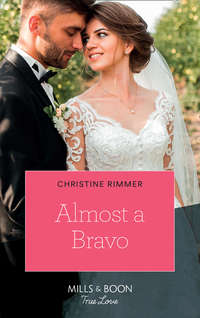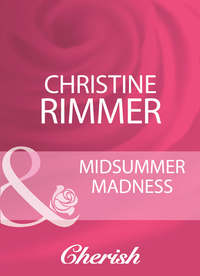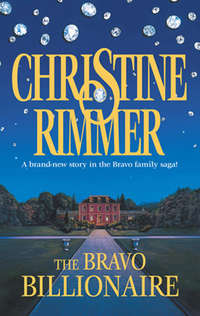
Полная версия
Scrooge and the Single Girl
Will went on scowling. Good gravy. How could she ever have imagined she might get something going with him?
And okay, she’d admit it. At one time—up until just a couple of weeks ago, as a matter of fact—she’d cherished the doomed hope that she and Will might get it together.
They had seemed to have a lot in common. Both from the same hometown, which was New Venice, Nevada, in the Comstock Valley, about twenty miles away from this dreary old house, down a number of twisting, turning mountain roads. They had both settled, at least for now, in Sacramento. And then there was the most obvious connection: his two brothers had married her two best friends.
And also, well, she might as well admit it. She’d been blinded for a while there by the kinds of minor details that have made women fools for certain men since the dawn of time. Blinded by things like his good looks and his social veneer—okay, it was hard to believe, looking at him now, but Will Bravo could be a major charmer when he chose to be. And along with the charm, he had that slightly dangerous rep as one of those yummy bad Bravo boys. Oh, and she mustn’t forget his impressive professional credentials: Will was an up-and-coming attorney on the Sacramento scene. For a while there, she’d dared to imagine that just maybe Will Bravo could turn out to be the man of her dreams.
But not anymore. Her eyes were wide open now. She saw him for what he really was: sour, sad and angry. Lost and alone—and determined to stay that way.
So let him. Tomorrow, when the storm was over, she’d pack up her Toyota, put Missy in her carrier and make tracks for home.
“Jillian,” he said in a low, warning tone.
She set down her glass and wiped her mouth with her napkin. “All right. It was like this. I needed an isolated cabin for a holiday piece I’m working on.”
He was staring at her, a sneering curl to his mouth. She knew what he thought of her. That she was shallow, one-dimensional, flighty in the extreme.
Far be it from her to disappoint him. “Originally, of course, I imagined a place with cable and central heat and a nice view of Lake Tahoe. One with a fully equipped kitchen and chef-quality appliances.” She waved her fork airily. “Unfortunately, it’s just been too crazy lately. One project after another, if you know what I mean. By the time I got around to making the arrangements, options were limited. More than limited. I couldn’t find a place.”
“So you called my mother.”
“No. First, I called Celia.”
He blinked. Then he gave out grudgingly, “Makes sense.”
And it did. Celia Tuttle, who was now Celia Bravo, had spent most of her working life as a personal assistant, first to a television talk-show host and then to the man who was now her husband, Will’s brother, Aaron. It was part of Celia’s job to know how to find just about anything anyone might need on very short notice.
“Celia reminded me about this house,” Jilly told him.
“And suggested that you give Caitlin a call.” He was getting the whole thing into perspective now, she could see it in his face. He was accepting the fact that she had been tricked every bit as much as he had.
Caitlin Bravo was a hopeless matchmaker when it came to her sons. And Aaron and Cade were all taken care of now. Only Will had yet to find a wife.
The son in question nodded wearily. “Okay. You called Caitlin. She offered you this place.”
Jilly nodded. “Your mother was smart. She played it just right. She told me all about how primitive the setup would be, reminded me of all the old stories about your grandmother.” The house had once belonged to Caitlin’s mother, Mavis McCormack, known to everyone in Will and Jilly’s hometown as Mad Mavis. People whispered that Mad Mavis’s ghost still haunted the old house. “But somehow,” Jilly added, “your mother forgot to mention that you would be up here, too. Isn’t that surprising?”
“Not in the least.” Will stared at the woman across the table from him. She’d taken off her big coat and her funny hat, shoved up the sleeves of her red-and-green turtleneck and dug right into the food he’d offered her. She had wild brown hair with gold streaks in it and sparkly gray-blue eyes under thick, straight, almost-black eyebrows—eyebrows so heavy they should have bordered on ridiculous. Yet somehow, they didn’t. Somehow, they looked just right on her.
Attractive? All right, he’d admit it. She was a good-looking woman. If you liked them slightly manic and obsessively upbeat. She had her own business—Image by Jillian, it was called. She counseled fast-track execs and other professional types on how to dress for success—business casual, with flair. She also wrote an advice column, Ask Jillian. The column had started out as a weekly, but recently it had gone to Monday through Friday in the Sacramento Press-Telegram.
Yeah, he knew all about Jilly Diamond. His mother had made sure of that.
“I’m here every year,” he reiterated grimly. “And Caitlin knows it.” He was thinking that he wouldn’t mind strangling Caitlin as soon as he could get his hands on her. He was thinking that she deserved strangling. After all, he’d made it crystal clear to her that Jillian Diamond was not the woman for him.
The woman who wasn’t for him said, “Well, Caitlin didn’t tell me you’d be here, or I promise you, I wouldn’t have come.”
At first, he’d thought otherwise. The last time he’d seen her, at that party of Jane and Cade’s a couple of weeks ago, he could have sworn she was interested. It hadn’t been anything obvious. Just the feeling that if he looked twice, she would, too.
He didn’t have that feeling anymore. Now, she looked no happier to be stuck with him than he was to have found her at his door.
And that was absolutely fine with him.
He heard a strange, soft rumbling sound and saw something furry in his side vision. Her cat. It had emerged from the bathroom and was sitting beside his chair, looking up at him, eyelids lowered lazily, an expression of near-ecstasy on its spotted face, its orange, black and white tail wrapped around its front paws. The rumbling sound, he realized, was coming from the cat. The damned animal was purring so loudly, he could hear it over the howling of the wind outside.
Jillian said, “Okay, Will. Now you tell me. What are you doing up here all alone for the holidays?”
He turned from the scary look of adoration in the cat’s amber eyes and gave it to her straight. “I hate the holidays. I want nothing to do with them. I accept the fact that there’s no way I can avoid this damn jolly season altogether. But I give it my best shot. I decorate nothing. I don’t send a single Christmas card. I shop for no one. And I keep my calendar clear from the twenty-second on. I come up here to my eccentric dead grandmother’s isolated house. I remain here until January second, without television or an Internet connection, with only a transistor radio to keep up with the weather reports and my mobile phone in case of emergencies.” He indicated the Dostoevsky at his elbow. “I catch up on my reading. And I do my level best to tell myself that Christmas doesn’t even exist.”
She stared at him, one of those too-thick eyebrows lifting. He waited for her to ask the next logical question, which was “Why?” When she did, he would tell her to mind her own damn business.
But she didn’t ask. She only said, softly, “Hey. Whatever launches your dinghy.”
They did the dishes together, not speaking. She washed and he dried.
As he hooked the dishtowel on the nail above the sink, he said, “There’s a bedroom down here, off the living area. I’m in there. You get the upstairs all to yourself.” He gestured at the door beside the one that led to the bathroom.
Jilly got her suitcase and her purse and followed him up a narrow flight of steps to a long, dark, spooky attic room. He flicked a wall switch at the top of the stairs. A bare bulb overhead popped on. In the hard, unflattering glare it provided, Jilly took it all in, from the single small window at the head of the stairs to the dingy gray-blue curtain in a pineapple motif at the opposite end.
Someone had taken the time to Sheetrock the slanted ceiling and to paint it and the low walls bubble-gum pink. Too bad they hadn’t bothered to cover the nails or tape the seams. The floor was the same as downstairs—buckling speckled linoleum. Three single beds were arranged dormitory style, with their headboards tucked under the lowest line of the eaves.
Oh joy, Jilly thought.
“There’s a double bed in the other room.” Will gestured at the curtain. “You’d probably be more comfortable in there.”
She went through, set down her things and turned on the small lamp by the bed. This area was pretty much identical to the one she’d just left: Sheetrocked and painted pink, with a single dinky window at the end opposite the curtain. The head of the bed butted up under the windowsill.
Will was standing by the curtain. “Everything okay?” He didn’t look as if he cared much what her answer might be.
“Fine.”
He left her, ducking back through the curtain. She heard his steady tread as he crossed the first room and went down the creaking stairs.
The bed, which was made up already and covered in a threadbare chenille spread, consisted of a set of box springs and a mattress on a plain metal frame. Jilly dropped to the side of it. The springs complained and the mattress sagged beneath her weight. Lovely. She looked at the window and saw her own reflection, ghostly, in the glass. Up here, under the eaves, the eerie sighing of the wind was even louder than downstairs.
She glanced at her watch. It was just seven-thirty. It would be a long, long night.
However. She did have her phone. And she had a few pointed questions for Celia. For instance, did Celia know that Will would be at Mad Mavis’s old house? Was Celia in on the matchmaking scheme, along with the devious, domineering Caitlin?
Jilly had a hard time believing that. For one thing, Jilly had never so much as mentioned to either of her closest friends that maybe—just possibly—she might have considered dating Will Bravo. And she’d also been careful not to ask questions about him. She’d scrupulously avoided showing too much interest when his name came up in conversation.
She did know there was tragedy in Will’s past. A few years ago, he’d lost a woman he truly loved. Her name had been Nora. But Jilly had only heard about her in passing.
“Poor Will,” Jane had said a month or so ago. “He was so in love. Did you know? Her name was Nora. Cade told me he’s still not really over her, even after five years….”
And about a week later, Celia had mentioned that Will and Nora had planned to be married. And that Nora had died before the wedding.
But Jilly never got the details. She didn’t let herself ask for them. It had never been anything solid, anyway, those stirrings of attraction she’d felt for Will. And in the end, he’d squashed her feelings flat, leaving her exceedingly glad that she hadn’t said a word.
Jilly dug her phone out of her purse and pushed the Talk button—and got the same crackling static she’d gotten earlier, when she’d tried to call Caitlin.
“Wonderful.” She tossed the phone down on the bed and let out a groan of frustrated boredom.
She thought of the Cheez Doodles she’d left out in the car. A bag or two could really help to get her through the night. And while she was at it, she could also grab her boom box and CDs. Since Caitlin had warned her that the cabin had no television or stereo, Jilly had brought along the boom box and a thick black zippered folder full of tunes. And not only that. Now that she thought about it, she remembered she’d stuck a few intriguing novels in her overnighter. The evening didn’t have to be a total bust, after all.
On the negative side, getting the snacks and the music would mean another freezing excursion out to her car. But not to worry. There was good news here. This time she could handle it herself in a single trip. No need to get the scrooge downstairs involved.
Her coat and hat were waiting where she’d left them, on the pegs by the door. She was pulling on the coat when Will said, “What’s going on?”
She flipped her hair out from under her collar and reached for her hat. Only then did she bother to face him.
He was sitting in the easy chair in the living area, reading his big, fat Russian novel. He’d dug up an old radio from somewhere and had it tuned in to what sounded like it might be an NPR talk show, though he had it down so low, who could say for sure? Missy lay curled in a ball on the rag rug at his feet, looking as if she belonged there. The cat seemed to like him—a lot. While Jilly understood that cats were contrary by nature, the idea of her own sweet Missy developing a kitty crush on Will Bravo didn’t please her at all. To Jilly’s mind, it was carrying contrariness altogether too far, not to mention that it bordered on disloyalty, considering the way Jilly felt about the man.
“I’m going out to my car. I forgot a few things.”
He frowned. “It’s pretty wild out there. Are you sure you can’t get along without whatever it is?”
“Oh, yes. Absolutely. We’re talking utter necessities.” She smiled brightly and gave him an emphatic nod.
He was slanting her a doubtful look. “You need some help?” He didn’t sound terribly anxious to get up from that comfortable chair and trudge out into the freezing, windy darkness.
But at least he had offered. She said, more pleasantly than before, “No, thanks. I can manage.”
He shrugged and went back to his big, boring book.
She pulled open the door and went out into the icy night. A huge gust of wind came roaring down the porch just as she stepped over the threshold, so she had to struggle with the door in order to get it shut. Then she wrapped her coat close around her, hunched her shoulders against the cold and headed for her car.
The snow was thicker on the ground than it had been the last trip out. And the storm itself seemed worse, the wind crueler, the snow borne hard on it, not falling at all, but swooping in sideways, stinging when it hit her cheeks. The branches of the pines that rimmed the clearing whipped wildly, making those strange, ghostly crying noises as the wind rushed between them. Jilly forged on to her car, passing beneath that lone maple tree, hearing those creepy crackling sounds, like bones rubbing together, as the branches scraped against each other.
At the Toyota, she hauled up the hatch and crawled inside. She got the boom box from the back seat, then climbed over that set of seats and got the CD folder from where she’d left it on the front passenger side. Then she backed out, grabbing a bag of Cheez Doodles on her way. She almost reached for her laptop, too. But it would just be something else to drag back outside tomorrow morning when she loaded up to leave, so she vetoed that idea.
Easing her boots down to the snowy ground, she got the hatch shut. She had the CD folder tucked under an arm and the boom box and the bag of cheese snacks in either hand as she started for the house.
She got as far as the big maple tree when a particularly hard gust of wind struck. She heard a sharp, explosive sound and glanced up just in time to see the heavy bare branch come crashing down on top of her.
Chapter Three
That cat of Jillian’s got up and stretched. It had started purring again. Loudly. It sat and licked its right front paw for a minute or two, then swiped the paw twice over its tattered ear. And then it just sat there, >looking up at him. Adoringly.
Will found the situation nothing short of unnerving. “Get lost,” he growled.
The cat didn’t move. The purring, if anything, seemed to grow louder. Mentally, Will drew the line. If that animal started rubbing itself against his leg, he was going to kick it. Firmly.
He didn’t like cats. Or dogs. Pets in general left him cold. Strangely, most animals seemed to like him. He didn’t get it. He just wished they would leave him alone.
The cat rose up on all fours and took a step toward him.
“Don’t,” he said loudly.
The cat dropped to its haunches again and went back to staring and purring with low, dreamy eyes. Will stared back for another two or three seconds, a hard stare, a stare meant to impart how unwelcome he found the attention of animals in general and raggedy-eared calico cats in particular. The cat stayed where it was. He began to feel it would be safe to get back to his book.
He had just lowered his gaze to the open volume in his lap when a particularly hard gust of wind wailed outside. Faintly, he heard that popping crack—like a distant pistol shot. He recognized the sound. A nearby tree had lost a good-sized branch.
He glanced up in time to see the cat blink and perk up its one good ear. Reluctantly, he thought of Jillian. Was it possible that she—?
Ridiculous. No way she could have managed to walk under the wrong tree at exactly the wrong moment. He was just edgy because it was Christmastime, and in his experience, at Christmastime, if something bad could happen, it would.
He shook his head and looked down at his book again. These interruptions were damned irritating. As if he didn’t have enough trouble keeping all those Russian names straight even under the most ideal of circumstances.
He read on. One page. Two.
How long had she been out there, anyway? Five minutes? More?
He looked up again. This time he found himself staring at the door, waiting for her to come bursting through it, that mouth of hers going a mile a minute, her arms full of whatever it was she just couldn’t last a whole night without.
But it didn’t happen. The door stayed closed.
So what? he tried to tell himself. She was Jillian, after all. Who knew what went on with a woman like that? She was probably only dithering as usual, fiddling with all those grocery bags, deciding she needed this or that, then changing her mind.
He tried to go back to his book one more time.
But it was no good. She’d been out there too long.
He swore and slammed the book shut.
Jilly blinked. For some strange reason, she was lying down, looking up through the bare branches of a tree at the stormy night sky. The wind was blowing hard and the snow was coming down and it was very cold. Also, she had a doozy of a headache.
She moaned and put a hand to her head, felt something warm and sticky. “Eeuu,” she said. “Ugh.”
Really, it was too cold to be lying around in the snow.
With effort, she turned over and got up on her hands and knees. From that position, though she found she swayed a little, she could see the tree branch that had hit her. It was directly in front of her. The memory of that split second before impact came back to her. She supposed it was a good thing she’d looked up when she did. As a result, it hadn’t landed right on top of her but had only kind of grazed her forehead. She touched the tender, bloody spot again. A goose egg was rising there. Now, that was going to be really attractive.
And wait a minute. Her hair was blowing into her mouth, plastered against her cheeks. Which meant her hat was gone. Now, where could it have—?
“Whoa,” she said as she realized she was listing to the right. She put her hand back down on the freezing snow. It sank in about five inches, all the way to the hard, rocky ground below.
Better, she thought—if, in this situation, there was such a thing. At least on all fours, she could keep her balance.
She turned her head—slowly, since it did ache a lot—to the right. Through the blowing tendrils of her hair, she saw a bag of Cheez Doodles and a tree trunk. She looked the other way, saw her boom box and CD folder and beyond that a ways, an old house.
Ah. She remembered everything now. That was Mad Mavis’s house. She was staying there. Just for the night, as it had turned out. Will Bravo was in there, reading Crime and Punishment, listening to National Public Radio, and, she hoped, beginning to wonder why she hadn’t come back in yet.
But no. Forget Will. He didn’t like her. He didn’t want her here. It would be a big mistake just to lie here, waiting for him to put down his book and come out and rescue her.
And besides, she was an independent, self-reliant woman and that meant she could take care of herself. She’d got herself into this jam and, by golly, she’d get herself out.
Could she stand?
Carefully, she lifted one hand again—and almost pitched sideways. She put the hand down.
“Ho-kay,” she muttered to herself. “Standing up goes in the Doubtful column.”
She glanced with regret at her Cheez Doodles. But there was no hope for getting them—or the boom box or the CDs—inside. Not this trip. She needed both hands in order to crawl.
So she started moving, slowly, with difficulty, more dragging herself, really, than crawling. She was thinking that if she could just make it to the porch, she could pound on the wall and Will would come out and help her the rest of the way. He might be a jerk, but he wasn’t a total monster. Maybe she could even convince him to go get her Cheez Doodles and her tunes—not that she was counting on that. Oh, no. Just hoping.
She was perhaps a quarter of the way to the porch when she started thinking that maybe she could force herself upright, stagger forward for a while and then go ahead and continue crawling when she fell down again. Yes. That would probably work. She really was feeling less dizzy by the second, which was a very good thing, as the less dizzy she was, the faster she could get herself back inside and out of this bone-chilling cold. She levered up onto her knees.
Miracle of miracles, she stayed there. Her teeth were chattering harder than ever, but she didn’t think she was going to fall over just then. She shoved at her unruly, wet hair, pushing it out of her eyes. Next step, bring one foot forward and—
But she didn’t get to that, because right then, she noticed that Will was striding toward her through the snow.
In no time at all, he was looming above her. “Damn it, Jilly.” The wind was making a lot of noise, and he spoke softly, for once. But still, she made out what he said.
Hey, she thought. Jilly. For the first time, he’d called her Jilly. Was this progress—or just a wild hallucination brought on by a blow to the head?
She didn’t much care. “You know, I have to admit it. I’m really glad to see you.”
He didn’t reply to that. She wondered if she’d even managed to say it aloud. And then she forgot to wonder as he knelt down and scooped her up into his strong arms, pulling her close to his hard, warm chest. She hooked an arm around his neck and buried her face against his shoulder with a sigh, all the reasons she disliked him for that moment forgotten.
Her head throbbed as he rose to his feet again, but the pain hardly registered. She was just so grateful he had come out and found her. She snuggled closer as he carried her into the house, stopping to stomp the snow off his boots before he went in, kicking the door closed with great authority once they’d crossed the threshold into the warmth and the light.
He took her to the narrow iron bed that served as a sofa and gently laid her down. He tucked pillows tenderly beneath her head. With care, he smoothed her snow-wet hair away from her face, frowning, looking at the goose egg swelling at her temple.
“Is it bad?” she asked.
“I’ve seen worse.” He patted her arm in doctorly fashion. He’d been such a complete crab since she’d knocked on his door that evening, it came as a pleasant surprise to learn that he could drum up a very respectable bedside manner when he had to.
Her booted feet, still encrusted with snow, hung over the side of the couch. He dropped down there and undid the laces and slid them off. She went ahead and straightened herself out on the couch as he stood.
“Right back,” he said, and left her. She watched him set her boots by the door and then, still wearing his jacket, he disappeared behind the half-wall that marked off the living area from the kitchen.








